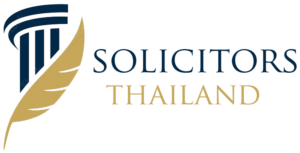Thailand Long-Term Resident Visa program, launched in 2022 via Cabinet Resolution, marks a pivotal transformation in the country’s immigration policy. Unlike traditional visa regimes governed solely by the Immigration Act B.E. 2522 (1979), the LTR Visa operates within a cross-ministerial policy framework—designed to attract targeted groups of foreign nationals who contribute tangible long-term value to Thailand’s economy, labor force, or demographic structure.
This article explores the LTR Visa’s benefits and privileges in detail, including its statutory basis, eligibility logic, fiscal treatment, employment rights, investment entitlements, and family inclusion mechanisms—from a legal-administrative perspective.
II. Legal Foundation and Regulatory Context
A. Authorizing Framework
-
Primary Law: Immigration Act B.E. 2522 (1979)
-
Enabling Directive: Cabinet Resolution (2022), delegating authority to the Board of Investment (BOI) to implement and manage the LTR Visa system.
-
Administrative Instruments:
-
BOI-issued guidelines on eligibility.
-
Ministry of Labour exemptions for work quota.
-
Revenue Department coordination on tax privileges.
-
B. Institutional Oversight
-
BOI: Verifies eligibility, oversees digital work permits, and monitors sectoral compliance.
-
Immigration Bureau: Administers visa issuance, entry and stay conditions.
-
One Stop Service Center (OSSVC): Centralized hub for processing LTR visas, renewals, tax consultation, and family visa handling.
III. Visa Term and Structural Features
| Feature | LTR Visa Provision |
|---|---|
| Validity | 10 years (issued as 5+5) |
| Type | Multiple-entry |
| Re-entry Permit | Not required |
| Reporting Obligation | Once annually (supersedes 90-day reporting rule) |
| Health Insurance | Required minimum USD 50,000 or enrolment in Thai Social Security |
| Work Permit | Optional; digital and quota-free (categories 3 and 4 only) |
The visa is intentionally designed to reduce bureaucratic friction, enhance investor and talent retention, and streamline administrative costs for both the state and the applicant.
IV. Target Categories and Strategic Objectives
LTR Visa holders must qualify under one of four clearly defined categories. These are aligned with national development goals.
1. Wealthy Global Citizens
-
Eligibility:
-
Net assets ≥ USD 1 million.
-
Income ≥ USD 80,000/year over the last 2 years.
-
Investment in Thailand ≥ USD 500,000 in property, equity, or bonds.
-
-
Policy Intent: Encourage portfolio diversification into Thailand and long-term capital injection.
2. Wealthy Pensioners
-
Eligibility:
-
Age ≥ 50.
-
Income ≥ USD 80,000/year (or USD 40,000/year + Thai investments ≥ USD 250,000).
-
-
Policy Intent: Support the service and healthcare sectors through predictable retirement spending.
3. Work-from-Thailand Professionals
-
Eligibility:
-
Employed by a foreign firm with annual revenue ≥ USD 150 million.
-
Income ≥ USD 80,000/year.
-
≥ 5 years’ experience.
-
Remote work model only.
-
-
Policy Intent: Tap into global location-independent workforces without competing in the domestic job market.
4. Highly Skilled Professionals
-
Eligibility:
-
Income ≥ USD 80,000/year (or ≥ USD 40,000/year + master’s or PhD).
-
≥ 5 years’ experience.
-
Employment with a BOI-certified or government-affiliated entity.
-
Sector: AI, biotech, robotics, aerospace, fintech, and other Thailand 4.0 priority sectors.
-
-
Policy Intent: Fill technical skill gaps and accelerate industrial upgrading.
V. Work Authorization: BOI Digital Work Permit
Available only to Categories 3 and 4, the BOI-issued digital work permit provides labor market access with exceptional administrative and legal clarity.
Legal and Administrative Features
-
Issued by: BOI, not Ministry of Labour.
-
Quota Exemption: No 4:1 Thai-to-foreigner employment ratio.
-
Employer Qualification: Must be BOI-certified or approved by a competent public agency.
-
Format: Digital only; integrated with LTR Visa database.
-
Renewability: 5 years, matching the initial LTR term.
This mechanism offers a rare blend of labor flexibility and legal formality in Thai employment law.
VI. Taxation Privileges
Thailand follows a territorial taxation system, and LTR holders benefit from additional codified privileges.
1. 17% Flat Personal Income Tax (PIT)
-
Eligible Applicants: Highly Skilled Professionals (Category 4).
-
Conditions: Must be employed by BOI-endorsed company.
-
Scope: Applies only to Thai-sourced income.
This is among the lowest effective tax rates available to legally employed foreigners in Thailand.
2. Foreign Income Exemption
Pursuant to Section 41 of the Revenue Code:
-
Unremitted foreign income is not taxable in Thailand.
-
Remittance triggers taxation only in the year funds are brought into the country.
Impact:
-
Digital nomads, retirees, and offshore investors can legally avoid PIT in Thailand.
-
Effective fiscal neutrality for income earned abroad and held offshore.
3. Filing Requirements
-
LTR holders are required to file an annual tax return if they meet Thai tax residency (≥183 days/year).
-
Offshore income need not be declared if it is never remitted.
VII. Property and Investment Rights
LTR Visa holders receive partial access to Thailand’s real estate and financial markets.
Permitted:
-
Condominium Ownership: Freehold ownership within the foreign quota (49% per development).
-
Leasehold Rights: Up to 30 years for land and residential houses (with optional renewal).
-
Investment Access: Eligible to invest in Thai government bonds, BOI-vetted ventures, and listed equities.
Prohibited:
-
Land Ownership: Not allowed under the Land Code B.E. 2497. The LTR Visa does not confer land ownership rights.
VIII. Dependent Rights and Family Inclusion
Each principal LTR applicant may include up to four dependents:
-
Spouse (legally married).
-
Children under 20 years of age.
Benefits for Dependents:
-
Receive a matching 10-year visa.
-
May reside, study, or apply for Thai work permits (if independently qualified).
-
Processed together under a unified OSSVC file.
This avoids the fragmentation and delays common in traditional Thai family visa applications.
IX. Administrative Privileges and Immigration Benefits
-
Fast-track immigration at designated Thai airports.
-
Exemption from re-entry permit requirements.
-
Centralized document management through OSSVC.
-
Simplified compliance procedures, such as address reporting and visa extension.
These privileges are designed to enhance Thailand’s competitiveness in attracting global professionals and investors.
X. Ongoing Compliance and Revocation
Ongoing Obligations
-
Maintain health coverage or participate in Thai Social Security.
-
File annual address report.
-
Fulfill tax filing duties (if resident).
-
Remain within the eligibility criteria (e.g., income level, BOI employment).
Revocation Criteria
-
Breach of eligibility conditions.
-
Submission of false documents.
-
Conviction for criminal offenses.
-
Threat to public order or national security.
Visa cancellation is executed by the Immigration Bureau based on BOI consultation. Appeals may be submitted via administrative procedures.
XI. Illustrative Scenarios
Scenario A: U.S. Digital Marketer (Remote)
-
Employer: U.S.-based firm.
-
Income: USD 150,000/year.
-
LTR Category: Work-from-Thailand Professional.
-
Tax Outcome: 0% in Thailand if income is not remitted.
Scenario B: German Retiree
-
Age: 66.
-
Pension: EUR 60,000/year.
-
Thai Investment: USD 300,000 in real estate.
-
LTR Category: Wealthy Pensioner.
-
Benefit: Long-term stay without annual retirement visa renewals or deposit maintenance.
Scenario C: Japanese Biotech Specialist
-
Income: THB 4.2 million.
-
Employer: BOI-certified lab.
-
LTR Category: Highly Skilled Professional.
-
Tax: Flat 17% on employment income.
-
Dependents: Spouse and two children included in application.
XII. Conclusion
The Long-Term Resident Visa is a legally sophisticated and policy-aligned instrument in Thailand’s immigration architecture. Unlike typical long-stay visas, the LTR Visa blends legal residence, fiscal benefit, labor market access, and administrative simplicity into one platform—structured not by immigration law alone, but by development strategy.
Its privileges are substantial: long-term validity, labor quota exemptions, tax relief, investment access, and family rights—all tied to transparent, rule-based criteria. It serves not only as a tool for individual mobility, but as an instrument of national economic design.

